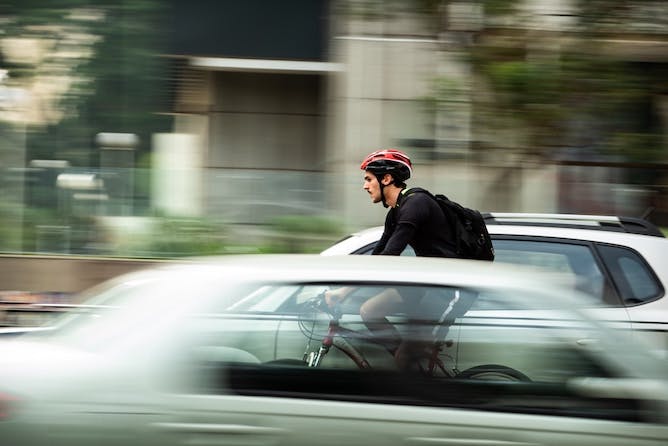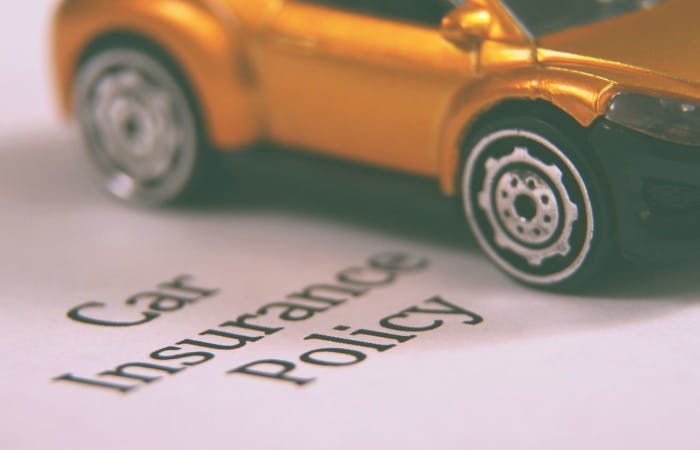
So, you've finally passed your theory and practical tests. Congratulations! The hardest part is over, right? Well, no, not really. It's not the case of letting loose now that you've not got an instructor watching your every move. If you make a mistake on the road, you could face serious consequences—from fines to penalty points to disqualification from driving altogether. To make sure you don't fall prey to these mistakes, you might want to have a look at the most common driving offences in the UK.
Our guide will take you through the most common driving offences using the latest statistics from the DVSA. These include everything from prosecution numbers to average fines to how many drivers were disqualified for the offence in 2018. Get all the facts below!
Most common driving offences in the UK
In order to discover which driving offences are the most common in the UK, we decided to consult the resident experts in all things driving-related—the DVSA—and took a deep dive into 2018's driving offences statistics. According to the stats, "prosecutions, convictions and sentences for motoring offences have all increased by 3% over the last year". On the one hand, this could be highlighting the fact that more motorists are committing offences on the roads. On the other hand, it could be reflecting the fact that the DVSA and the police have been cracking down on driving offences in recent years in order to improve road safety.
If you commit a driving offence, you could face a variety of consequences depending on how serious it is. Penalties include:
- Penalty points: the number you receive will depend on the offence. Points will remain on your licence for up to 11 years. If you receive 12 points or more within 3 years, you'll be disqualified. Unfortunately for new drivers, if you get 6 points or more within 2 years of passing your test, your licence will be revoked.
- Fines: depending on the offence, you could get an on-the-spot fine or an unlimited one if it ends up in court.
- Disqualification: in certain cases, drivers face the possibility of being disqualified from driving for a certain number of years if the case ends up in court.
Almost 2.7 million full licence holders have penalty points on their record! Wondering if you live near any penalty point holders? Check out our article on where the UK's worst drivers live.
Now, let's take a look at what the most common driving offences were in 2018 below...
Most common driving offences in 2018
1. Speed limit offences

Top statistics from 2018:
- 189,109 prosecutions
- 178,291 findings of guilt (figure counts all offences each person is convicted for separately)
- 168,550 sentenced to a fine
- £222 average fine
- 4,206 offenders directly disqualified from driving
In an unsurprising find, speeding is top of the list for most common driving offences in the UK in 2018. In fact, figures show that prosecutions for speeding saw an increase of 7.2% to 189,109 in 2018.
If you're caught speeding by the police, or a speed camera, you'll be sent a Notice of Intended Prosecution and a Section 172 Notice. You will then need to inform the police who was driving the car at the time of the speeding offence. Now, some speeding offenders, depending on how over the limit they were, will be offered a speed awareness course—meaning you avoid getting points on your licence. This is at the discretion of local police, however, so you might not be given the option. In this case, you would receive 3 points on your licence and a fine of £100. If you end up in court, you're looking at an unlimited fine and the possibility of a driving ban.
Related articles:
- Is there a minimum speed limit?
- Understanding the national speed limit
- Speed awareness courses—everything you need to know
2. Vehicle insurance offences

Top statistics from 2018:
- 168,964 prosecutions
- 179,650 findings of guilt
- 147,254 sentenced to a fine
- £362 average fine
- 2,329 offenders directly disqualified from driving
Despite the fact that insurance is a legal requirement for those driving on UK roads, the number of drivers prosecuted for driving without insurance rose by 3.3% to 168,964 in 2018.
If you're driving without insurance, you run the risk of being caught by an ANPR camera which will cross check your registration number against database records. If it's found that you're uninsured, you face a fixed penalty of £300 and between 6 to 8 penalty points—if you're a new driver, this means your licence will be revoked! Then, if your case goes to court, you could get an unlimited fine and disqualified from driving. Don't think that claiming you forgot to renew your insurance will get you off the hook—ignorance is not a defence!
It's really not rocket science. All drivers are legally obligated to have at least third party cover. Whilst it might seem expensive, it's still a better alternative to being disqualified from driving altogether. Plus, there are plenty of ways to get a cheaper deal.
Related articles:
3. Vehicle registration and excise licence offences

Top statistics from 2018:
- 100,021 prosecutions
- 91,228 findings of guilt
- 89,313 sentenced to a fine
- £308 average fine
- All vehicles on UK roads need to be properly registered and taxed. Failing to do either can result in heavy consequences. Despite this, the number of road users prosecuted for flouting the rules of vehicle registration and excise licence increased by 8.3% to 100,021 in 2018.If you're driving an untaxed or unregistered vehicle, you could end up having your vehicle clamped and removed. Even if you're not driving the vehicle anymore, if you've not registered it as off the road (SORN), you'll automatically be fined £80. This particular offence also includes those who have failed to notify the DVLA that their vehicle has changed owners—leading to a maximum penalty of £1,000! Additionally, those who have obscured their number plate (intentional or not) could be slapped with a fine, points or even disqualification from driving. All registration numbers must be displayed clearly, so make sure you check!
4. Failing to supply information as to the identity of the driver when required

Top statistics from 2018:
- 93,394 prosecutions
- 91,073 findings of guilt
- 83,371 sentenced to a fine
- £289 average fine
- 230 offenders directly disqualified from driving
When a driver is caught committing an offence on the roads, they're usually contacted by the police to disclose the identity of the driver at the time of the offence. Despite this being a seemingly straightforward process, prosecutions for drivers failing to supply this information saw an increase of 5.4% to 93,394 in 2018.
Usually, when a traffic offence occurs, it's caught by an unmanned device, e.g., a speeding camera. As such, the police will have to get in contact with the owner of the vehicle and ask them to identify the driver of the vehicle at the time and location of the offence—they'll usually do this by letter. If you fail to answer the notice, or fail to identify the driver, you could face a fine, up to 6 penalty points and disqualification from driving!
5. Drink driving

Top statistics from 2018:
- 34,534 prosecutions
- 35,900 findings of guilt
- 25,522 sentenced to a fine
- £306 average fine
- 32,280 offenders directly disqualified from driving
Another driving offence you probably predicted would be on this list is drink driving. The number of prosecutions for those driving with alcohol in the blood above the prescribed limit saw a marginal drop of 0.3% to 34,534 in 2018.
The legal alcohol limit for driving in England, Wales and Northern Ireland stands at 80 milligrams per 100 millilitres of blood (in Scotland, it's 50 milligrams). Now, it's impossible to say how many drinks it would take for a person to remain under or over the limit—it varies depending on weight, age, sex, metabolism and many other factors. Whilst you might feel fine after having that extra pint, it could have a huge impact on your reactions and reflexes.
The police are allowed to stop anyone on the road they think is driving under the influence. If they pull you over for drink driving, you'll be made to take a breathalyser. If you're over the limit, you could face a driving ban, between 6 to 11 points, a fine and up to 6 months' imprisonment.
Subscribe for driving advice, offers & more
We'd love to let you know about our courses, news and offers via email. You may unsubscribe at any time.
Star Genie Limited trading as PassMeFast. Company number 10093359
Copyright © 2024 owned by Star Genie Limited
PassMeFast, Blue Tower, MediaCityUK, Salford, M50 2ST
